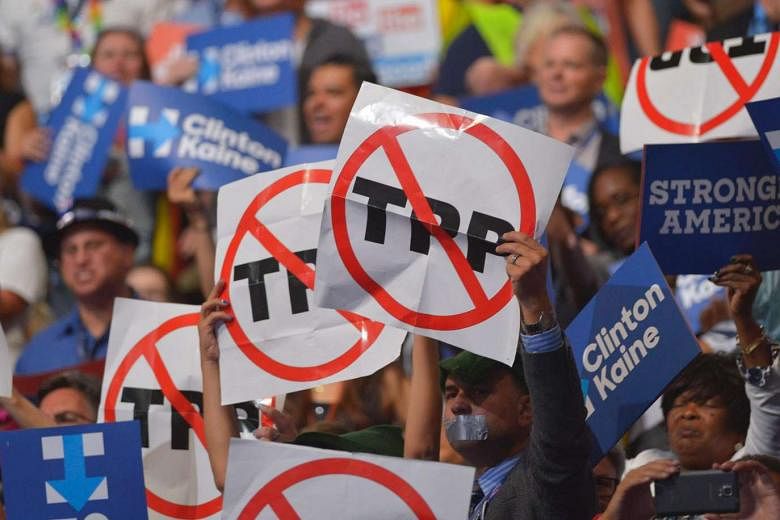The much-vaunted Trans Pacific Partnership (TPP) hangs in limbo and US President Barrack Obama will have a difficult task pushing it through a dubious Congress in the remaining months of his tenure.
At a White House press conference with Singapore Prime Minister Lee Hsien Loong on Tuesday, Obama said the TPP would be of significant benefit to the American people and the US economy.
Becoming passionate on the subject, he said those benefits extend around the world, since the partnership would raise trading standards and promote more open trade with countries in the Asia-Pacific region. He went as far as saying that America's failure to approve the TPP would put China in a position to win the high-stakes game of international commerce.
But the already daunting task Obama faces in getting the trade law past US legislators deepened further this week when Hillary Clinton, his former secretary of state and the Democratic Party's nominee to succeed him as president, came out against the TPP.
It was a surprising change of course for the candidate, who helped negotiate the terms of the trade pact - and a clear reaction to grumbling about the deal from the American public. Clinton's running mate, Virginia Senator Tim Kaine, has undergone the same change of heart, announcing this week he is against the TPP, despite having supported it until now.
Obama has only one option if he wants to salvage the scheme and make this particular US-based global economic partnership part of his legacy. He has to make sure Congress approves it before his term of office ends in January.
For reasons that aren't apparent, he is confident that he'll succeed in doing so, and we hope he's right. Failure on the incumbent's part would be disastrous for the policy he initiated during his second term aimed at re-balancing global power.
On Tuesday Singapore's Lee did an admirable job trying to help Obama's cause, arguing in turn for the TPP and listing its potential benefits.
Singapore has, after all, enjoyed more privileges than most countries when it comes to trade with the US and security matters. The island-state is America's largest trading partner in Southeast Asia and the biggest beneficiary of US investment. Lee thus felt he had to be succinct in warning America that its creditability would crumble and uncertainties would abound if the TPP fell by the wayside.
Other signatories to the pact would be sorely disappointed, he said, and that could damage US policy in general and its interests abroad, especially among key Asian allies such as Japan that rely on the US for security as well as financial aid.
Obama pointed out, correctly, that there is a great deal of misunderstanding and misinformation about the TPP, mainly regarding its anticipated effects on the American workforce and the environment.
Yet he said he is confident that he'll be able to turn negative opinion around once the November election is out of the way and before the new president takes office.
Local observers noted with interest how, for the first time, Obama repeatedly mentioned the roles played by the Asean and its prime security forum, the East Asia Summit. He will be attending the 2016 session of the leaders' summit in Vientiane early next month, his final diplomatic outing as president.
Even if the TPP is cast aside, Obama will still be able to claim a worthy legacy in our region. He will have inspired thousands of young people in Southeast Asia to look ahead to a more peaceful and prosperous world of increased interdependence among cultures, governments and economies. It was particularly cheering to hear him say that his fondest memories of his visits here are of his interactions with young people.
The Nation is a member of The Straits Times media partner Asia News Network, an alliance of 21 newspapers.

